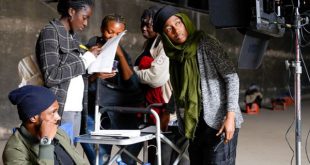
Other armed groups have allowed rape as a practice and sometimes committed it as a strategy for war purposes. Researcher Erin Baines has convincingly explained how another rebellion – also in Uganda, by the Lord’s Resistance Army – used forced marriage and policed sexual relations by its members as a way to give birth to its own ethnically based nation.
And other armed movements can be indiscriminate and opportunistic. They may not order sexual violence, but it is still a pronounced part of their conduct. For these types of rebel groups, women’s bodies are the staging ground for advancing the insurgency, or just part of the spoils of war.
But according to the NRA’s code, all women deserved the same treatment as their own sisters or daughters or wives. The leadership sought to nurture a sense of empathy based on these roles, to get its fighters to relate to females through this lens. Rape would not only harm women and girls but rupture important relationships with the local population and the wider community.
This is not particularly empowering for women’s sexual autonomy, since it still positions female bodily integrity in relation to kinship bonds. But that is another matter.
The NRA’s war took place before the current existing data-collection efforts and parameters of the Sexual Violence in Conflict Dataset. Still, my research makes me doubt it would be added to today’s list of armed actors with a pattern of sexual violence.
Stigmatising sexual predation
My research shows that prevention is possible, even in the most startling contexts. The rebel armies I have examined have not had perfect track records. They used capital punishment and fell well short of my feminist standards. They promoted masculinities that continued to position women as dependent on male protection.
I do not doubt there are survivors of abuse by members of these groups. But the pattern is of institutional prevention, not predation. These insurgents crafted masculine norms of soldiering that emphasised empathy for women and girls, and respect for wider societal bonds.
These armed groups chose to invest in creating new norms and behaviours, and ultimately, preferences for sexual discipline. It worked. Imagine, then, the depth of change that may be possible elsewhere.
*****
Angela Muvumba Sellström is a researcher, Departement of Peace and Conflict, Uppsala University, Fondation Maison des Sciences de l’Homme (FMSH) – USPC
 The Independent Uganda: You get the Truth we Pay the Price
The Independent Uganda: You get the Truth we Pay the Price


